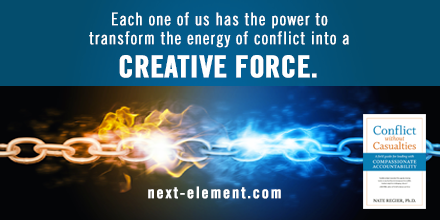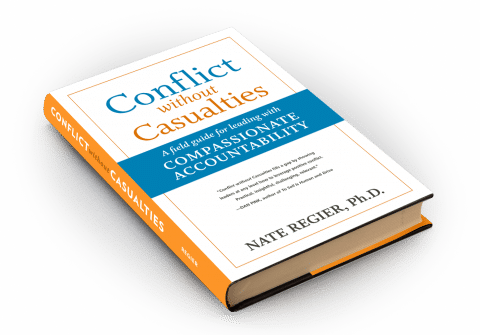
My Manifesto For Change. Conflict Isn’t The Problem.
Share viaIt’s not surprising that when I Google the word ‘conflict,’ the terms ‘resolution,’ ‘mediation,’ ‘management,’ and ‘reduction’ pop up. All of these words convey an important message about our association with conflict; that it needs to be managed, reduced, resolved and mediated.
The problem with conflict mediation, conflict management, and conflict reduction is that each one positions conflict as the culprit.
Whether intended or not, these labels and much of the methods used in the conflict and communication fields reinforce the misconception that if we can remove the conflict, things will be better.
When we mediate, manage, or reduce the conflict, we necessarily reduce the energy available for productive problem-solving. When we respect the tension and use that energy to create instead of destroy, the results can be transformative.
Read my entire manifesto at http://changethis.com/manifesto/show/152.04.ConflictWithoutCasualties. In it you will discover,
- The Four Myths of conflict
- My definitions of drama and compassion
- The Compassion Cycle, a model for conflict without casualties
- The unwritten rules of drama-based cultures
- The 10 Rules of Engagement for Compassion-Based Cultures
Read my manifesto
Copyright Next Element Consulting, 2017
 Get the book that’s starting a movement!
Get the book that’s starting a movement!
Book Your Next Keynote Speaker

Author and Co-founder of Next Element, Dr. Nate Regier is available to speak at your upcoming event.
Submit a Speaker RequestPodcast: Listen to Nate "On Compassion"
 Listen to the Podcast
Listen to the Podcast



1 Comments
Conflict is a frustrated attempt to evoke understanding and change. Like fire, it is the observable energy of a reaction. This energy can (and should) be harnessed and focused towards productive behavior. The lens of compassion, whether trained upon ourselves (because we are individually worthy of our own and others compassion) or others, can provide the clarity to identify and guide what that energy can produce.
Thanks for sharing this, Drew.
Add comment
Add comment
Add comment